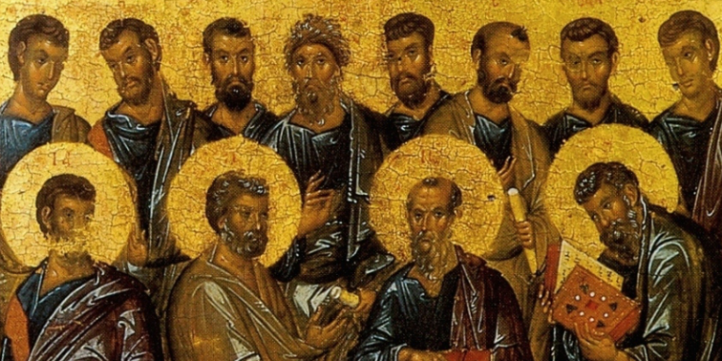
Read the Fathers, With the Humility of the Fathers
Throughout the antiquity of the Church, there have been seasons in which it seemed the Lord was pleased to open the eyes of Christian thinkers to see that aspects of the predominant theologies of the day were lacking. In some of these cases, mental breakthrough took the form of theological innovation in which the Church began to articulate, for the first time, truths that lead to her flourishing.
On the other hand, theological health and fidelity have often come not by way of innovation, but retrieval. This occurs when insightful theologians, looking backward, see that the Church previously stated and conceived of different theological realities with greater clarity than in their own day. Theological retrieval roots itself in Christian theologians prizing nuance over novelty, which in turn, leads us to champion the voices of saints of the past. In a reversal of Lewis’ chronological snobbery, retrieval aims to show the value in history.
We can see the spirit of retrieval in the ad fontes posture of the Reformation and more recently in the emergence, during the last few decades, of the doctrines of grace as Christians looked back for help in articulating our soteriology.
The God of Abraham, Isaac, and Jacob (and Augustine)
It seems apparent that evangelical theology, at least in some circles, is currently in such a state of retrieval. The current state of reclamation is one marked by an articulation of Christian theism aided by the patristic and medieval church. The repercussions of reviving early Christian thought are perhaps felt nowhere more than the doctrine of God and the doctrine of Scripture. By way of brief example, we can see signposts of the latter in publications such as: Michael Allen and Scott Swain’s, Reformed Catholicity: The Promise of Retrieval for Theology and Biblical Interpretation as well as their larger project in the T&T Clark International Theological Commentary, Thomas Oden’s Ancient Christian Commentary on Scripture, and Craig Carter’s, Interpreting Scripture with the Great Tradition: Recovering the Genius of Premodern Exegesis, to name just a few.
As for the doctrine of God, there is a rise of literature treating perfections such as divine aseity, simplicity, immutability, impassibility, eternality, and the like. Moreover, these doctrines are on the move into the local church as a result of volumes like None Greater: The Undomesticated Attributes of God by Matthew Barrett and God of Our Fathers: Classical Theism for the Contemporary Church, edited by Brad Littlejohn. Underplayed doctrines like the eternal modes of subsistence, inseparable operations, and robust trinitarianism are enjoying evangelical spotlight in ways they rarely have in the past. Consequently, many evangelicals, for the first time, value the likes of Augustine, Athanasius, Gregory of Nazianzus, Cyril of Alexandria, Aquinas, Anselm, and others, in the endeavor of establishing coherence in their Christian worldview. Theological arrogance is typically a sign of a theological fad from which the participants will move onto the next wave of ideas in a few short years. Share on X
Read the Fathers, with the Humility of the Fathers.
This retrieval project is a cause for celebration as it pulls the Church’s attention away from the “domesticated” God of modernity and stirs her affections for the incomprehensible God of the Scriptures. Yet, with the territory of theological discovery and retrieval often comes unfounded arrogance. As we see the beauty of theological concepts and figures previously lost on us, we often communicate our excitement in words laced with superiority over those who have yet to experience such theological retrieval. My aim with this brief article is to provide a gentle call for theological humility – first to myself – and to those, like me, who have found a home in the modern expression of classical theism.
The love we have for the theology of the Fathers does not mean we should belittle those who have not had spent much time in the classics.
The love we have for the theology of the Fathers does not mean we should take to social media to broadcast each time we read the Fathers in order to demonstrate how well read we are.
The love we have for the theology of the Fathers does not mean we should feel the need to degrade other eras of theological antiquity.
The love we have for the theology of the Fathers does not mean we should mock each syllabus or reading list we find to be lacking in patristic or medieval material.
The love we have for the theology of the Fathers is rooted in the love we have for the God of the Fathers. Therefore, we should read the Fathers, with the humility of the Fathers.
Neither theological snarkiness nor scoffing will demonstrate the glory and grace of the God of Abraham, Isaac, and Jacob. Theological arrogance is typically a sign of a theological fad from which the participants will move onto the next wave of ideas in a few short years. Yet, intrinsic to the nature of retrieval is the admission that we, in our current day, need the help of those who have come before us; this admission of intellectual need should be wed to a posture of theological humility.
May we continue in this path of retrieval, and may we continue in the path of humility.
“There is something in humility which, strangely enough, exalts the heart, and something in pride which debases it” (Augustine).

